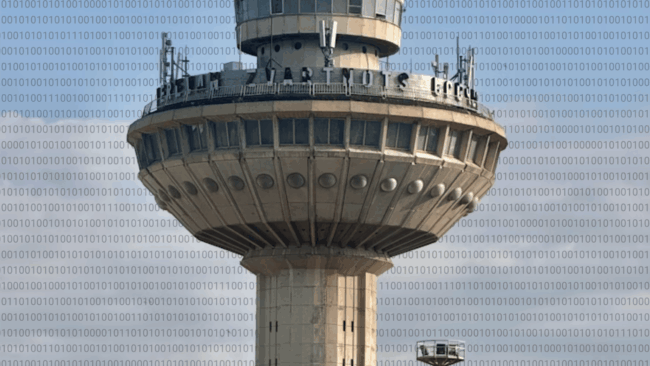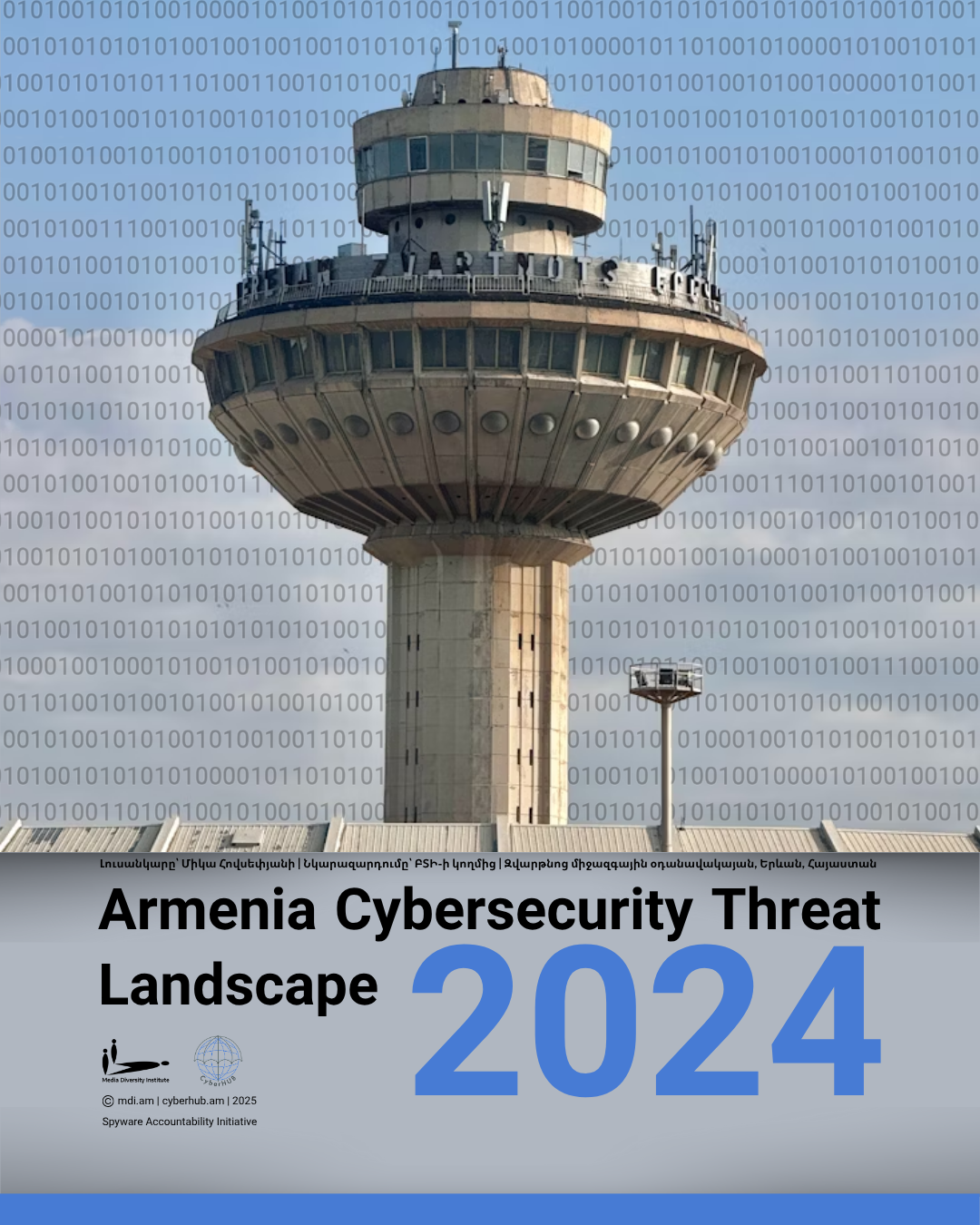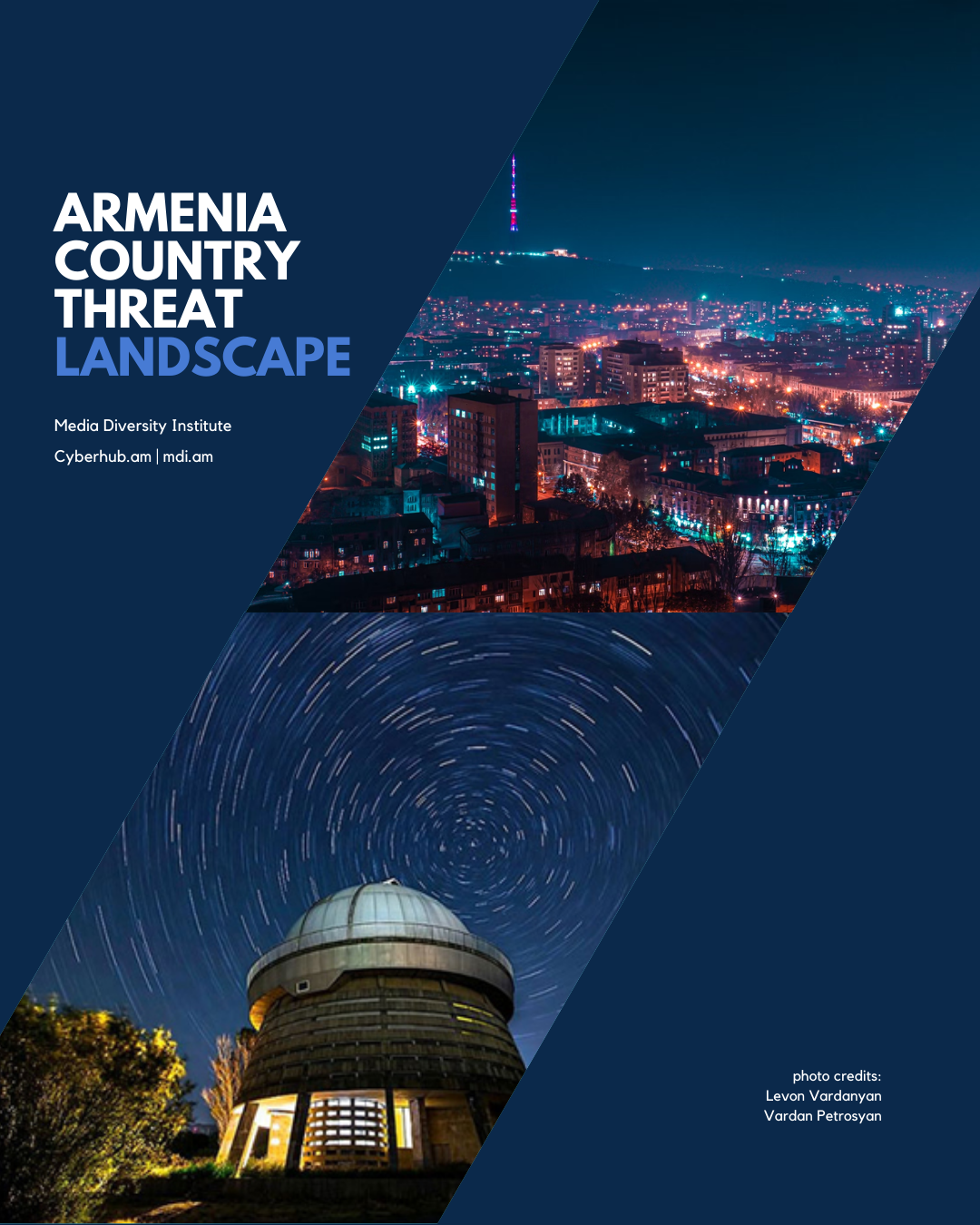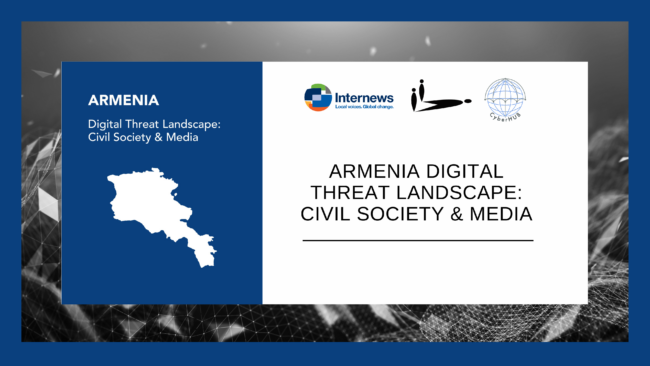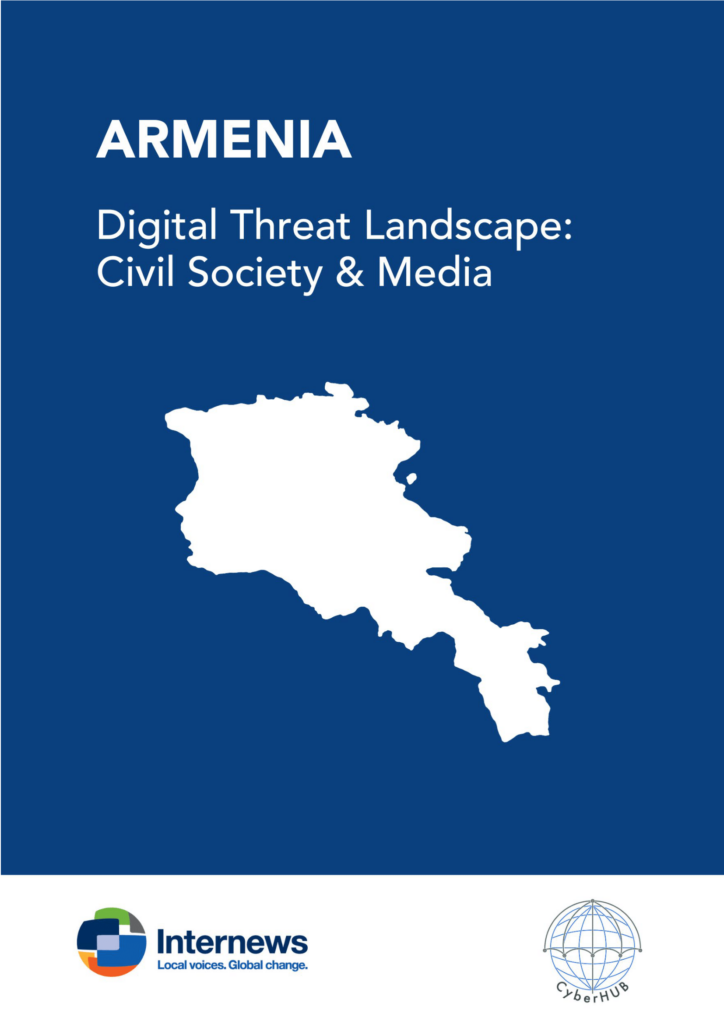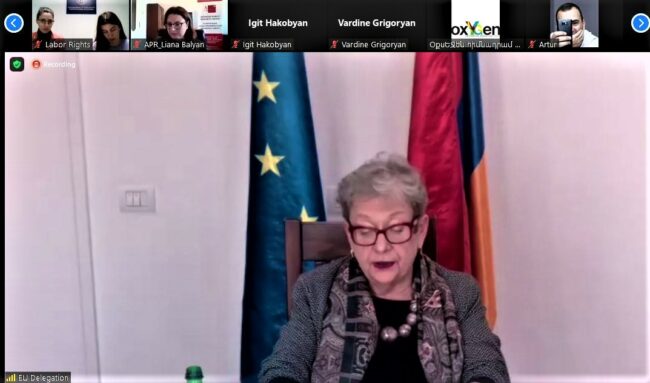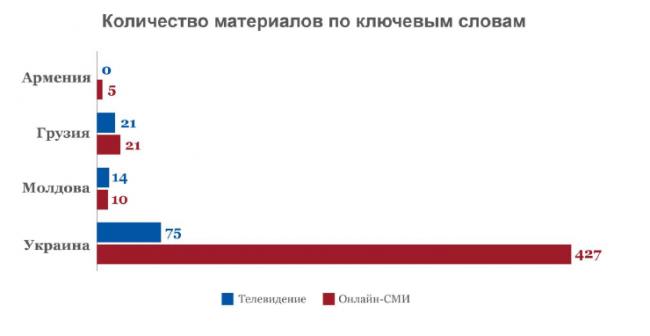Monitoring analytical report
1. Context
The first week of February 2026 was marked by the activity of information flows, which was conditioned by the pre-election campaign of a number of political forces. The main emphasis shifted to the realm of personal defamation and external geopolitical influences. Key events, such as Sargis Karapetyan’s controversial podcast and the US Vice President J.D. Vance’s upcoming visit, have become the main driving forces in the formation of narratives.
Summary statistics
| Narrative (in descending order) | Main cast | Telegram | YouTube | TikTok | General | |
|---|---|---|---|---|---|---|
| 1. Discrediting competitors | RA media platforms | 142 | 115 | 68 | 39 | 364 |
| 2. Borders and trade | Anonymous websites | 89 | 94 | 55 | 30 | 268 |
| 3. External influence | Political actors | 76 | 112 | 59 | 20 | 267 |
| 4. Armed Forces | RA media platforms | 39 | 115 | 86 | 13 | 253 |
| 5. Elections and the Central Election Commission | Anonymous websites | 54 | 82 | 67 | 22 | 225 |
| 6. Energy and infrastructure | RA media platforms | 48 | 76 | 62 | 18 | 204 |
| 7. Existential threat | Political actors | 42 | 68 | 55 | 32 | 197 |
| 8. Europe and Armenia | RA media platforms | 51 | 64 | 58 | 18 | 191 |
| 9. Church and State | Political actors | 36 | 72 | 64 | 18 | 190 |
| 10. PEACE AND TRIPP | Anonymous websites | 28 | 54 | 42 | 14 | 138 |
| GENERAL | 605 | 852 | 616 | 224 | 2297 |
2.1. Analysis of narratives and their frequency
The 3 main narratives in the information flow were:
- Discrediting competitors(narratives that attempt to discredit political opponents, accuse them of crimes, treason, or conspiracies) –364 items. This is the most extensive topic of the week. The central event was the podcast with the participation of businessman Samvel Karapetyan’s son, Sargis Karapetyan, where his formulations (“There will be no sexually dissatisfied woman in the Strong Armenia.”) were used by the authorities to discredit a political opponent, his family, and the political force. This narrative even reached the international pres – The Telegraph for example. On the other hand, the pro-opposition outlets are working to discredit the authorities by spreading old and manipulative information about the salary increase of Nikol Pashinyan’s daughter, Mariam Pashinyan, by 4.2 million drams, accusing the authorities of corruption and “plunder.”
- Borders and trade (Allegations regarding the borders of the Republic of Armenia, import-export and economic dependence)– 268 items.This narrative emphasizes Armenia’s economic dependence and the vulnerability of its border security. Discussions are unfolding especially around Syunik, which is presented as a point of containment for Russia and Iran. J.D. Vance’s upcoming visit to Yerevan and Baku is seen as an attempt by the USA to control the transit routes in the region.
- External influence (messages presenting political forces or figures as agents of foreign influence)– 267 items. The issue is being raised also in the form of the thesis of undermining statehood through “Western occupation” and “a network of NGOs.” This narrative is also closely linked to the upcoming visit of US Vice President J.D. Vance and the intensification of Armenian-American relations.
Analysis of the other 7 narratives:
- Armed Forces (Messages that negatively represent or discredit the Armed Forces of the Republic of Armenia) – 253 items. The emphasis is on the internal problems of the army and the suspension of the activities of clergy appointed by the church in the army from February 1.
- Elections and the Central Election Commission (distrust in the electoral process and the Central Election Commission or allegations of election fraud)– 225 items. The main accusation is the payment of bonuses to civil servants, and is called “state-sponsored bribery” to elect the authorities in the upcoming elections.
- Energy and infrastructure (misinformative claims about power grids, energy security, and infrastructure) – 204 items. This narrative is circulating in parallel with political processes. The main focus is the narrative of “looting” around the Electric Networks of Armenia (ENA), after the Government took over its control.
- Existential threat (claims in which electing a political force is presented as a threat to the state’s existential or national security)– 197 items. Elections are presented as struggle for survival, where defeat means the ultimate loss of statehood.
- Europe and Armenia (narratives about European institutions and the role of the EU) – 191. EU monitoring mission and financial support are presented as “interference in internal affairs and the erosion of traditional values.”
- Church and state (Narratives emerging around the relationship between the Armenian Apostolic Church and the government) – 190 items. The central theme was the narrative of International Religious Freedom Summit and the internationalization of the “repressions” against the Armenian church.
- Peace and TRIPP (Emerging narratives around the peace process and Trump’s Route)– 138 items. Despite its low volume, this is a qualitatively important narrative. J.D. Vance’s Expected Visit (February 9) is connected with the practical launch of TRIPP, nuclear energy and technology.
2.2. Analysis of narrative intersections
This week’s key crossover is between the two narratives: “Peace and TRIPP” and “External influence”. More specifically, J.D. Vance’s visit is being presented as an attempt by the US to establish a strategic presence in the region.
The second important intersection is between “Discrediting competitors” and “Energy” narratives. The topic of targeting Samvel Karapetyan’s family is combined with an information attack against the ENA.
2.3. Platform Analysis
Telegram (852 items) remains the main platform for spreading manipulative information and harsh criticism through unknown and/or unidentified information channels. YouTube (616) is actively used for podcasts and long interviews. Facebook (605) serves as a means of targeting the main audience, and TikTok (224) is used for the distribution of emotional short videos. Videos created by various political forces using artificial intelligence tools are also being widely shared on this platform.
2.4. Actor analysis
1. RA media platforms and media outlets.This group has mainly covered the statements and posts of political figures and actors.
2. Anonymous and/or de-identified information websites.These actors, especially on the TikTok social platform, have actively distributed videos created using artificial intelligence-powered tools.
3. Politicians and actors.This group is the main source of narratives. The group has been particularly active in spreading the scandal surrounding Sargis Karapetyan.
3. Time dynamics
| Narrative | Sun. | Monday. | Tue. | Dry. | Five. | Friday. | Sat. | Sun. | Quantity |
|---|---|---|---|---|---|---|---|---|---|
| 1. Discrediting competitors | 16 | 32 | 69 | 79 | 82 | 46 | 28 | 12 | 364 |
| 2. Borders and trade | 9 | 31 | 34 | 29 | 46 | 72 | 36 | 11 | 268 |
| 3. External influence | 8 | 35 | 54 | 45 | 57 | 43 | 16 | 9 | 267 |
| 4. Armed Forces | 12 | 49 | 57 | 19 | 20 | 43 | 41 | 12 | 253 |
| 5. Elections and the Central Election Commission | 3 | 42 | 53 | 33 | 18 | 44 | 27 | 5 | 225 |
| 6. Energy | 8 | 34 | 82 | 18 | 19 | 15 | 21 | 7 | 204 |
| 7. Existential threat | 11 | 9 | 38 | 16 | 35 | 26 | 58 | 4 | 197 |
| 8. Europe and Armenia | 6 | 21 | 25 | 26 | 77 | 25 | 9 | 2 | 191 |
| 9. Church and State | 6 | 26 | 51 | 26 | 36 | 21 | 16 | 8 | 190 |
| 10. Peace and TRIPP | 1 | 10 | 43 | 24 | 38 | 4 | 13 | 5 | 138 |
| GENERAL | 80 | 289 | 506 | 315 | 429 | 339 | 265 | 75 | 2297 |
4. Conclusions and findings
- Targeting the Sargis Karapetyan scandal. It was the most resonant topic of the week, used by the authorities to prematurely neutralize a potential new political rival.
- Expectations for J.D. Vance’s visit: The visit of the US Vice President (February 9) is seen as the start of the practical phase of the TRIPP project and a new level of Armenian-American relations.
- The internationalization of the church issue. International Religious Freedom Summit gave new impetus to this narrative. Criticism of the steps taken against the church, taking it out of the domestic political sphere.
- The information environment is entering a phase of open confrontation, where international visits and personal defamation become the main levers for influencing the electorate.
___________________________________________________________________________
The monitoring was conducted by the information NGO “Multilateral Information Institute” (MDI).
The report has been developed.“Methodology for monitoring the 2026 parliamentary elections of the Republic of Armenia”Automated data collection and report development were carried out using artificial intelligence tools:
- LetsdataThe digital monitoring tool was used to collect primary source data,
- andClaude, NotebookLMandGeminitools for generating reports.
The analysis is based on a pre-selected list of 250 sources (aka actors). The process was accompanied by professional supervision, with the participation of a monitoring specialist and a data collection specialist, to ensure reliability.
Monitoring Analytical Report: The Information Environment of Armenia and Narrative Dynamics (February 1-8)
1. Context
The first week of February 2026 saw a high volume of information flow, primarily driven by the pre-election campaign activities of various political forces. The central focus shifted towards personal defamation and external geopolitical influences. Key events, such as the controversial podcast involving Sargis Karapetyan and the anticipated visit of US Vice President J.D. Vance, were the main catalysts shaping the narratives.
Summary Statistics
| Narrative (in descending order) | Main Actor | Telegram | YouTube | TikTok | General | |
| 1. Discrediting competitors | RA media platforms | 142 | 115 | 68 | 39 | 364 |
| 2. Borders and trade | Anonymous websites | 89 | 94 | 55 | 30 | 268 |
| 3. External influence | Political actors | 76 | 112 | 59 | 20 | 267 |
| 4. Armed Forces | RA media platforms | 39 | 115 | 86 | 13 | 253 |
| 5. Elections and the Central Election Commission | Anonymous websites | 54 | 82 | 67 | 22 | 225 |
| 6. Energy and infrastructure | RA media platforms | 48 | 76 | 62 | 18 | 204 |
| 7. Existential threat | Political actors | 42 | 68 | 55 | 32 | 197 |
| 8. Europe and Armenia | RA media platforms | 51 | 64 | 58 | 18 | 191 |
| 9. Church and State | Political actors | 36 | 72 | 64 | 18 | 190 |
| 10. PEACE AND TRIPP | Anonymous websites | 28 | 54 | 42 | 14 | 138 |
| GENERAL | 605 | 852 | 616 | 224 | 2297 |
2.1. Analysis of Narratives and Their Frequency
The information flow was dominated by three main narratives:
- Discrediting Competitors (narratives that attempt to discredit political opponents, accusing them of crimes, treason, or conspiracies) – 364 items.
This was the most extensive topic of the week. The central event was a podcast featuring Sargis Karapetyan, the son of businessman Samvel Karapetyan. His statements, such as: “There will be no dissatisfied woman in a strong Armenia,” were used by pro-government forces to discredit a political opponent, his family, and the associated political party. The story even reached the international media, specifically The Telegraph. Conversely, the opposition worked to discredit the authorities by circulating old and manipulative information about a 4.2 million dram salary increase for Nikol Pashinyan’s daughter, Mariam Pashinyan, accusing the government of corruption and “plunder.” - Borders and Trade (allegations concerning the borders of the Republic of Armenia, import/export, and economic dependence) – 268 items.
This narrative highlighted Armenia’s economic dependence and the vulnerability of its border security. Discussions unfolded particularly around Syunik, which was framed as a point of containment for Russia and Iran. J.D. Vance’s upcoming visit to Yerevan and Baku was interpreted as a review of regional transport routes. - External Influence (messages presenting political forces or figures as agents of foreign influence) – 267 items.
The thesis was raised of undermining statehood through “Western occupation” and a “network of NGOs.” This narrative is also closely linked to the upcoming visit of US Vice President J.D. Vance and the intensification of Armenian-American relations.
Analysis of the other 7 narratives:
- Armed Forces (messages that negatively represent or discredit the Armed Forces of the Republic of Armenia) – 253 items. The emphasis was on the internal problems of the army and the suspension of activities for clergy appointed by the church within the army, effective February 1.
- Elections and the Central Election Commission (distrust in the electoral process and the Central Election Commission or allegations of election fraud) – 225 items. The main accusation was the payment of bonuses to civil servants, which was termed “state bribery” to elect the authorities in the upcoming elections.
- Energy and Infrastructure (misinformative claims about power grids, energy security, and infrastructure) – 204 items. In parallel with political processes, the narrative circulated that ENA (Electric Networks of Armenia) was being “looted.”
- Existential Threat (claims in which electing a political force is presented as a threat to the state’s existential or national security) – 197 items. Elections were presented as an ontological struggle, where defeat would mean the ultimate loss of statehood.
- Europe and Armenia (narratives about European institutions and the role of the EU) – 191 items. The EU monitoring mission and financial support were presented as “interference in internal affairs and the erosion of traditional values.”
- Church and State (narratives emerging around the relationship between the Armenian Apostolic Church and the government) – 190 items. The central theme was the Washington religious freedom summit and the internationalization of “repressions” against the church.
- Peace and TRIPP (emerging narratives around the peace process and Trump’s path) – 138 items. Despite its low volume, this is a qualitatively important narrative. J.D. Vance’s expected visit (February 9) was connected with the practical launch of TRIPP, nuclear energy, and high technology.
2.2. Analysis of Narrative Intersections
The week’s key intersection was between “Peace and TRIPP” and “External Influence”: J.D. Vance’s visit was presented as an attempt by the US to establish a strategic presence in the region.
The second important intersection was between “Discrediting Competitors” and “Energy” narratives, where the targeting of Samvel Karapetyan’s family was combined with an information attack against the ENA.
2.3. Platform Analysis
- Telegram (852 items) remains the primary platform for spreading manipulative information and harsh criticism via unknown and/or unidentified channels.
- YouTube (616 items) is actively used for podcasts and long interviews.
- Facebook (605 items) serves as the main channel for targeting the general audience.
- TikTok (224 items) is used for distributing emotional short videos. Videos created by various political forces using artificial intelligence tools are also being widely shared on this platform.
2.4. Actor Analysis
- RA media platforms and media outlets: This group primarily covered the statements and posts of political figures and actors.
- Anonymous and/or de-identified information websites: These actors, especially on the TikTok social platform, actively distributed videos created using artificial intelligence-powered tools.
- Politicians and actors: This group is the main source of narratives and was particularly active in spreading the scandal surrounding Sargis Karapetyan.
3. Time Dynamics
| Narrative | Sun. | Mon. | Tue. | Wed. | Thu. | Fri. | Sat. | Sun. | Quantity |
| 1. Discrediting competitors | 16 | 32 | 69 | 79 | 82 | 46 | 28 | 12 | 364 |
| 2. Borders and trade | 9 | 31 | 34 | 29 | 46 | 72 | 36 | 11 | 268 |
| 3. External influence | 8 | 35 | 54 | 45 | 57 | 43 | 16 | 9 | 267 |
| 4. Armed Forces | 12 | 49 | 57 | 19 | 20 | 43 | 41 | 12 | 253 |
| 5. Elections and the Central Election Commission | 3 | 42 | 53 | 33 | 18 | 44 | 27 | 5 | 225 |
| 6. Energy | 8 | 34 | 82 | 18 | 19 | 15 | 21 | 7 | 204 |
| 7. Existential threat | 11 | 9 | 38 | 16 | 35 | 26 | 58 | 4 | 197 |
| 8. Europe and Armenia | 6 | 21 | 25 | 26 | 77 | 25 | 9 | 2 | 191 |
| 9. Church and State | 6 | 26 | 51 | 26 | 36 | 21 | 16 | 8 | 190 |
| 10. Peace and TRIPP | 1 | 10 | 43 | 24 | 38 | 4 | 13 | 5 | 138 |
| GENERAL | 80 | 289 | 506 | 315 | 429 | 339 | 265 | 75 | 2297 |
4. Conclusions and Findings
- Targeting the Sargis Karapetyan scandal: This was the most resonant topic of the week, used by the authorities to prematurely neutralize a potential new political rival.
- Expectations for J.D. Vance’s visit: The visit of the US Vice President (February 9) is seen as the start of the practical phase of the TRIPP project and a new level of Armenian-American relations.
- The internationalization of the church issue: The Washington Summit gave new impetus to criticism of the steps taken against the church, internationalizing the issue by taking it out of the domestic political sphere.
- The information environment is entering a phase of open confrontation, where international visits and personal defamation become the main levers for influencing the electorate.
—–The monitoring was conducted by the information NGO “Multilateral Information Institute” (MDI).
The report was developed using the Methodology for monitoring the 2026 parliamentary elections of the Republic of Armenia. Automated data collection and report development were carried out using artificial intelligence tools:
- The Letsdata digital monitoring tool was used to collect primary source data.
- Claude, NotebookLM, and Gemini tools were used for generating reports.
The analysis is based on a pre-selected list of 250 sources (also known as actors). The process was accompanied by professional supervision, with the participation of a monitoring specialist and a data collection specialist, to ensure reliability.
